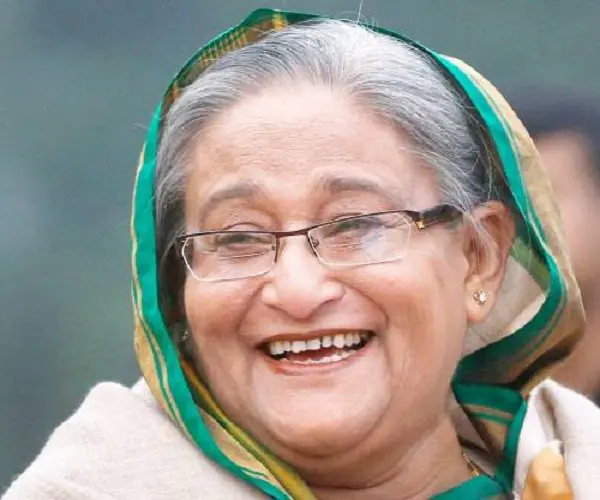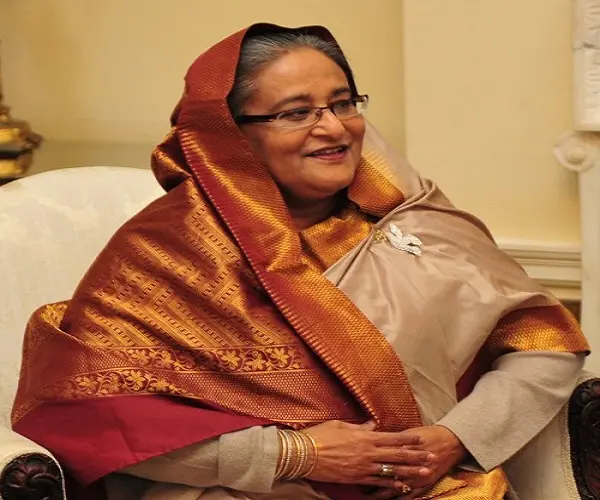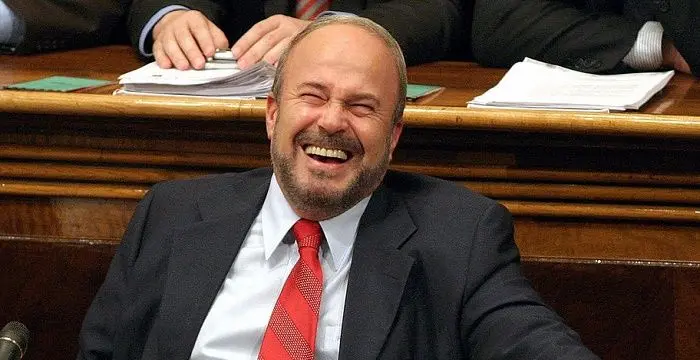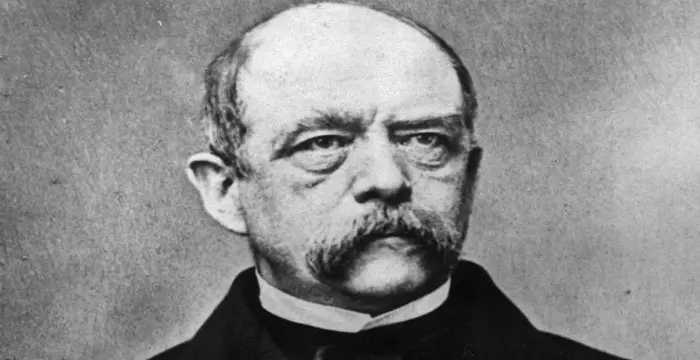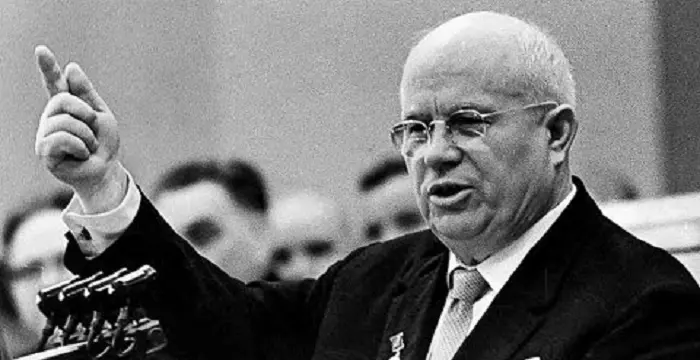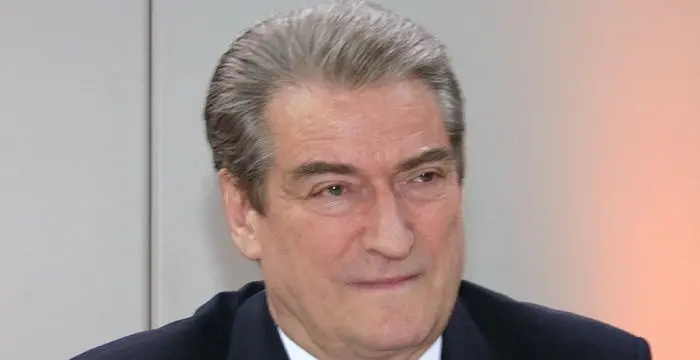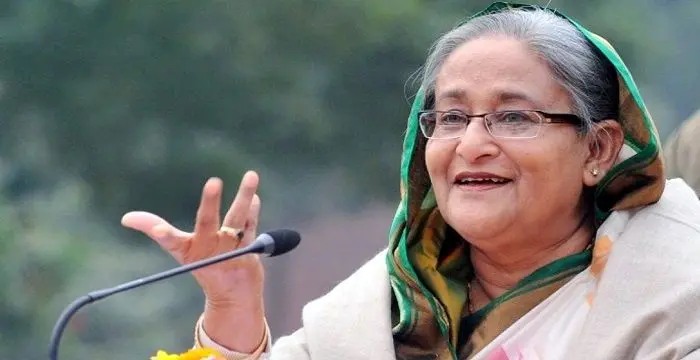
Sheikh Hasina - Bangladeshi Women, Birthday and Childhood
Sheikh Hasina's Personal Details
Sheikh Hasina, the current Prime Minister of Bangladesh is known for steering the country towards democracy and establishing political stability
| Information | Detail |
|---|---|
| Birthday | September 28, 1947 |
| Nationality | Bangladeshi |
| Famous | Democrats, Boston University, Leaders, Prime Ministers, Bangladeshi Women, Prime Minister of Bangladesh |
| Ideologies | Democrats |
| Spouses | M. A. Wazed Miah |
| Siblings | Sheikh Kamal |
| Known as | Sheikh Hasina Wazed |
| Childrens | Saima Wazed Hossain Putul, Sajeeb Wazed |
| Universities |
|
| Notable Alumnis |
|
| Birth Place | Tungipara Upazila |
| Political Ideology | Awami League |
| Religion | Islam, Sunni Islam |
| Height | 135 |
| Gender | Female |
| Father | Sheikh Mujibur Rahman |
| Mother | Sheikh Fazilatunnesa Mujib |
| Net Worth | $1 billion as of May 11,2017 |
| Sun Sign | Libra |
| Born in | Tungipara Upazila |
| Famous as | Prime Minister of Bangladesh |
Sheikh Hasina's photo
Who is Sheikh Hasina?
Sheikh Hasina Wazed and her family have played a nominal role in the politics of Bangladesh. From an early age, she was exposed to the political chaos and violence going on in her home country. The countries political affairs were so unstable that in 1971 Bangladesh separated completely from Pakistan, an event in which her father played an integral role. The atmosphere was so dysfunctional that the resulting political discord left Sheikh no choice but to leave the country for a few years. Upon her return, she became completely dedicated to changing the country from one of violence to one dedicated to democracy. Before her interference, elections were often rigged, voting was not guaranteed or even counted properly, and the country was so volatile that those who opposed the government were often jailed, exiled, or even murdered. Through this amazingly strong woman’s dedication, Bangladesh has significantly improved becoming less violent, more democratic, and allowing more civil liberties than ever before. Women have been given a voice in politics thanks to her interest in women and children’s rights. This leader is a survivor in all senses of the word, and she continues to strive for a better life for her and her fellow Bangladeshis as current Prime Minister.
Childhood & Early Life
This leader was born on September 28, 1947 into a life of turmoil and violence. Her father, Sheikh Mujibur Rahman was integral in the movement to separate Bangladesh from Pakistan and also became the first President of Bangladesh.
While simultaneously studying at the University of Dhaka in the 1960s, she worked as her father’s political liaison while he was imprisoned.
On August 15, 1975 she was met with unfortunate tragedy. Her father, mother, and three brothers were all murdered in their home by military officers. As a result, she went into lonely exile for the next six years.
Career
In 1981, she returned to Bangladesh and became a strong advocate for democracy. She was elected to lead the ‘Awami League Party’ in February. Unfortunately, her unpopular opinions put her under house arrest or in prison for most of the decade.
In 1990, through a constitutional process, she offered General Ershad, who had gained power through a coup and led though martial law, a 24-hour ultimatum which ultimately led to him to quit.
In the elections that followed, her party, the ‘Bangladesh Nationalist Party’ (BNP) convinced the government to change from one of complete executive control to one where the Parliament was supreme and the executive party more accountable.
Her next task was to create an equal voting process. Prior to her pushing voting as a basic human and political right in 1996, elections were generally falsified through selective voting lists, predetermined votes, and a slanted counting process. An amendment for neutral and free elections was passed the same year.
On June 23rd, 1996, she was elected and sworn in as the second female Prime Minister of Bangladesh. Throughout her term, the country continued to be in political, often violent, chaos.
In 2001, she lost the election and political turmoil only got worse. There were violent protests and strikes, grenade attacks, and extreme political unrest. She led the party opposing the government for the next seven years.
During her tenure in the opposition she became the target of an assassination attempt in 2004. The grenade attack aimed at her resulted in the death of 21 fellow ‘Awami League’ members.
In 2007, the government declared a state of emergency and further canceled parliamentary elections. At the same time, Hasina was arrested on charges of extortion and murder. She was not released until a year later for medical concerns.
In 2009, she was elected as Prime Minister once again. Like her first term, she was forced to confront major revolts and civil unrest.
She continues to serve as Prime Minister today after winning again in 2014. She remains dedicated to creating a government in which democracy and civil liberties can flourish.
Major Works
The most significant move of her career was the signing of the ‘Chittagong Hill Tracts Peace Accord’ in December 1997. The treaty was an agreement between Bangladeshi government and the ‘Parbatya Chattagram Jana Sanghati Samiti’, a political organization armed with a militia. The peace agreement ended decades of violence, confrontation, and hostility between the government and the tribes of the region.
Awards & Achievements
In 1997, alongside the Queen of Spain and the United States First Lady Hilary Clinton, she was invited to co-chair the ‘Micro-credit Summit’ which became an important humanitarian movement.
In 1998, she was awarded the ‘Mother Teresa Award’ by the ‘All India Peace Council’. She was given the award for her peace efforts involving the tribes of Bangladesh and her efforts to prohibit the use of anti-personnel mines, the first country in South Asia to make this move.
In 1998, she was also awarded the ‘M K Gandhi Award’ in Norway’s ‘Mahatma M K Gandhi Foundation’. She received the honor for her significant contribution to promoting peaceful understanding and democracy in Bangladesh.
Personal Life & Legacy
She married in 1968 to a prominent Bengali scientist, M.A. Wazed Miah. Together the couple had one son and one daughter.
Her son, Sajeeb Wazad, follows her footsteps remaining active in the ‘Awami League’. It is rumored his net worth is over $1 billion, making him one of the richest men in Bangladesh.
Trivia
This famous political leader’s father’s political dealings and eventual imprisonment caused her to live a life in fear. She took refuge by living with her grandmother where she was not allowed to attend school.
// Famous Leaders
Edi Rama
Edi Rama is the current Prime Minister of Albania. Check out this biography to know about his childhood, life, achievements, works & timeline.
Tecumseh
Tecumseh was a Native American leader of the Shawnee clan. This biography profiles his childhood, life and timeline.
Khalifa bin Zayed Al Nahyan
Sheikh Khalifa bin Zayed Al Nahyan is the current President of the United Arab Emirates (UAE). Check out this biography to know about his birthday, childhood, family life, achievements and fun facts about him.
Sheikh Hasina's awards
| Year | Name | Award |
|---|---|---|
Other | ||
| 0 | Indira Gandhi Prize | |
Sheikh Hasina biography timelines
- // 28th Sep 1947This leader was born on September 28, 1947 into a life of turmoil and violence. Her father, Sheikh Mujibur Rahman was integral in the movement to separate Bangladesh from Pakistan and also became the first President of Bangladesh.
- // 1968She married in 1968 to a prominent Bengali scientist, M.A. Wazed Miah. Together the couple had one son and one daughter.
- // 15th Aug 1975On August 15, 1975 she was met with unfortunate tragedy. Her father, mother, and three brothers were all murdered in their home by military officers. As a result, she went into lonely exile for the next six years.
- // 1981In 1981, she returned to Bangladesh and became a strong advocate for democracy. She was elected to lead the ‘Awami League Party’ in February. Unfortunately, her unpopular opinions put her under house arrest or in prison for most of the decade.
- // 1990In 1990, through a constitutional process, she offered General Ershad, who had gained power through a coup and led though martial law, a 24-hour ultimatum which ultimately led to him to quit.
- // 1996Her next task was to create an equal voting process. Prior to her pushing voting as a basic human and political right in 1996, elections were generally falsified through selective voting lists, predetermined votes, and a slanted counting process. An amendment for neutral and free elections was passed the same year.
- // 23rd Jun 1996On June 23rd, 1996, she was elected and sworn in as the second female Prime Minister of Bangladesh. Throughout her term, the country continued to be in political, often violent, chaos.
- // 1997In 1997, alongside the Queen of Spain and the United States First Lady Hilary Clinton, she was invited to co-chair the ‘Micro-credit Summit’ which became an important humanitarian movement.
- // Dec 1997The most significant move of her career was the signing of the ‘Chittagong Hill Tracts Peace Accord’ in December 1997. The treaty was an agreement between Bangladeshi government and the ‘Parbatya Chattagram Jana Sanghati Samiti’, a political organization armed with a militia. The peace agreement ended decades of violence, confrontation, and hostility between the government and the tribes of the region.
- // 1998In 1998, she was awarded the ‘Mother Teresa Award’ by the ‘All India Peace Council’. She was given the award for her peace efforts involving the tribes of Bangladesh and her efforts to prohibit the use of anti-personnel mines, the first country in South Asia to make this move.
- // 1998In 1998, she was also awarded the ‘M K Gandhi Award’ in Norway’s ‘Mahatma M K Gandhi Foundation’. She received the honor for her significant contribution to promoting peaceful understanding and democracy in Bangladesh.
- // 2001In 2001, she lost the election and political turmoil only got worse. There were violent protests and strikes, grenade attacks, and extreme political unrest. She led the party opposing the government for the next seven years.
- // 2004During her tenure in the opposition she became the target of an assassination attempt in 2004. The grenade attack aimed at her resulted in the death of 21 fellow ‘Awami League’ members.
- // 2007In 2007, the government declared a state of emergency and further canceled parliamentary elections. At the same time, Hasina was arrested on charges of extortion and murder. She was not released until a year later for medical concerns.
- // 2009In 2009, she was elected as Prime Minister once again. Like her first term, she was forced to confront major revolts and civil unrest.
- // 2014She continues to serve as Prime Minister today after winning again in 2014. She remains dedicated to creating a government in which democracy and civil liberties can flourish.
// Famous Prime Ministers
Edi Rama
Edi Rama is the current Prime Minister of Albania. Check out this biography to know about his childhood, life, achievements, works & timeline.
Leo Varadkar
Cam Leo Varadkar is the current Taoiseach—the Prime Minister—of the Republic of Ireland. Check out this biography to know about his childhood, family life, achievements and other facts about his life.
Fatos Nano
Fatos Nano is an Albanian politician who served as Prime Minister of Albania for several times. Check out this biography to know about his childhood, life, achievements, works & timeline.
Otto von Bismarck
Otto von Bismarck served as the Chancellor of Germany and the Prime Minister of Prussia. He unified the German states into a powerful German empire. This biography profiles his childhood, political career, life, achievements and timeline.
Nikita Khrushchev
Nikita Khrushchev was a former Soviet premier. This biography gives detailed information about his childhood, life, achievements and timeline.
Sali Berisha
Sali Berisha is an Albanian politician who served as the President and the Prime Minister of Albania. Check out this biography to know about his childhood, life, achievements, works & timeline.
Sheikh Hasina's FAQ
What is Sheikh Hasina birthday?
Sheikh Hasina was born at 1947-09-28
Where is Sheikh Hasina's birth place?
Sheikh Hasina was born in Tungipara Upazila
What is Sheikh Hasina nationalities?
Sheikh Hasina's nationalities is Bangladeshi
What is Sheikh Hasina ideologies?
Sheikh Hasina's ideologies is Democrats
Who is Sheikh Hasina spouses?
Sheikh Hasina's spouses is M. A. Wazed Miah
Who is Sheikh Hasina siblings?
Sheikh Hasina's siblings is Sheikh Kamal
Who is Sheikh Hasina childrens?
Sheikh Hasina's childrens is Saima Wazed Hossain Putul, Sajeeb Wazed
What was Sheikh Hasina universities?
Sheikh Hasina studied at Boston University, University of Dhaka, Eden Mohila College, Boston University
What was Sheikh Hasina notable alumnis?
Sheikh Hasina's notable alumnis is Boston University
What is Sheikh Hasina's political ideology?
Sheikh Hasina's political ideology is Awami League
What is Sheikh Hasina's religion?
Sheikh Hasina's religion is Islam, Sunni Islam
How tall is Sheikh Hasina?
Sheikh Hasina's height is 135
Who is Sheikh Hasina's father?
Sheikh Hasina's father is Sheikh Mujibur Rahman
Who is Sheikh Hasina's mother?
Sheikh Hasina's mother is Sheikh Fazilatunnesa Mujib
What is Sheikh Hasina's sun sign?
Sheikh Hasina is Libra
How famous is Sheikh Hasina?
Sheikh Hasina is famouse as Prime Minister of Bangladesh
